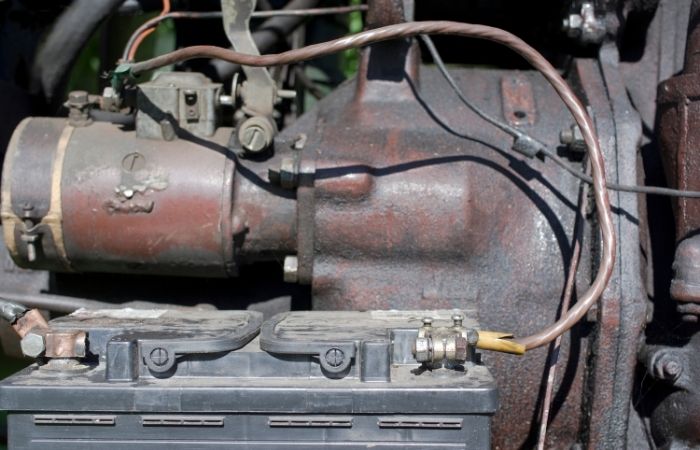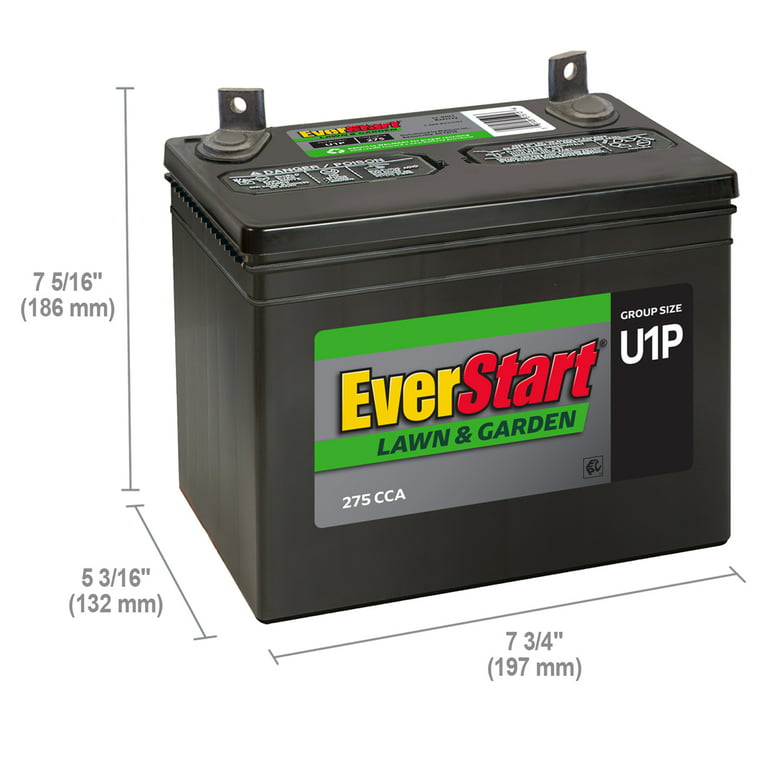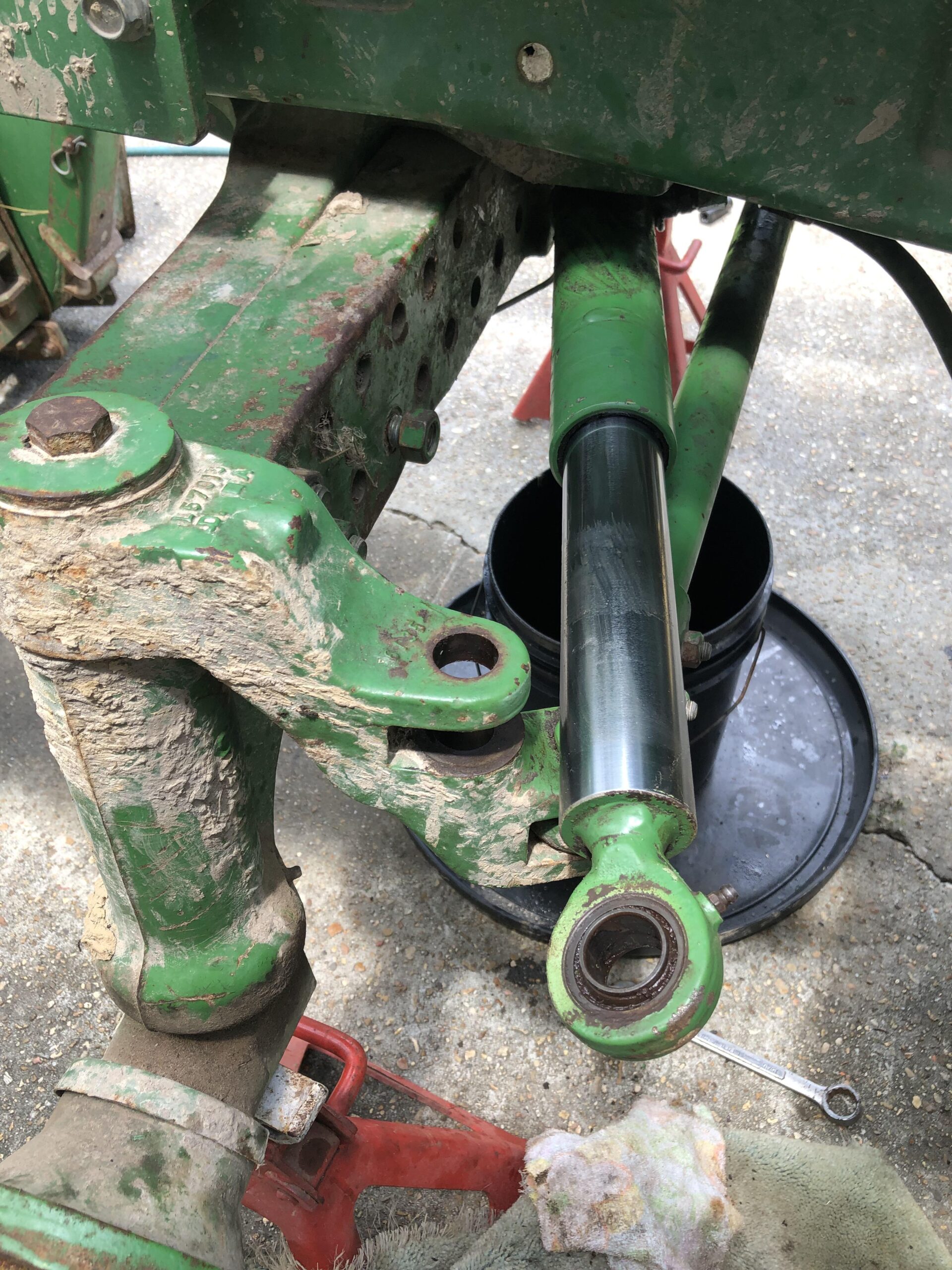Tractor batteries typically last 3-5 years. Factors like usage and maintenance can impact longevity.
Tractor batteries are essential for powering the vehicle’s engine and electrical systems. Understanding how long these batteries last is crucial for farmers and agricultural workers who rely on their equipment daily. By having a knowledge of the average lifespan of tractor batteries, individuals can effectively plan for replacements and avoid unexpected breakdowns in the field.
We will explore the factors that influence the lifespan of tractor batteries and provide tips on how to extend their durability. With proper care and maintenance, tractor batteries can continue to perform optimally, ensuring smooth operations on the farm.

Credit: farmingfans.com
Factors Affecting Tractor Battery Life
Tractor battery life depends on various factors including usage, maintenance, and environmental conditions. Regular maintenance, proper charging, and storing the battery in a cool, dry place can extend its lifespan. Additionally, using quality batteries and ensuring proper electrical system function also contribute to how long tractor batteries last.
Factors Affecting Tractor Battery Life Climate Conditions Climate conditions play a significant role in determining the lifespan of a tractor battery. Extreme temperatures can have a detrimental impact on the battery’s performance and longevity. Prolonged exposure to high temperatures can accelerate internal corrosion and lead to the evaporation of electrolyte, reducing the overall lifespan. On the other hand, prolonged cold temperatures can increase the rate of discharge, especially for tractors left unused during the winter months. Usage Frequency The frequency of usage directly impacts the lifespan of a tractor battery. Frequent and prolonged use can wear down the battery more quickly due to repeated charging and discharging cycles, potentially leading to a shorter overall lifespan. Conversely, infrequent use can result in sulfation, a condition where sulfate crystals build up on the battery plates, diminishing its capacity and longevity. Maintenance Practices Regular maintenance is crucial for prolonging the life of a tractor battery. Routine inspections to check for corrosion, loose connections, and proper electrolyte levels are essential. Cleaning the terminals, ensuring secure connections, and using a battery maintainer during periods of inactivity can all contribute to extending the battery’s lifespan. In conclusion, understanding the various factors that influence tractor battery life, such as climate conditions, usage frequency, and maintenance practices, can aid in maximizing the longevity of the battery, thereby optimizing the tractor’s performance and reliability.
Credit: www.walmart.com
Signs Of A Failing Tractor Battery
Spotting signs of a failing tractor battery early is crucial to avoid getting stranded in the field. Here are some common indicators that your tractor battery might be on its way out:
Slow Cranking
A slow cranking engine is a clear indicator that the tractor battery is struggling to provide enough power to start the engine efficiently.
Dim Headlights
Dim headlights while starting the tractor indicate that the battery is unable to supply sufficient power to the electrical components.
Corrosion On Battery Terminals
Corrosion buildup on the battery terminals can disrupt the flow of electricity, affecting the tractor’s overall performance.
Battery Age
The age of the battery also plays a significant role in determining its lifespan. Older batteries are more prone to failure and should be monitored closely.
Extending The Lifespan Of Tractor Batteries
Tractor batteries are essential for powering the vehicle’s engine and electrical components. As a tractor owner, it’s important to maximize the lifespan of your battery to avoid unexpected breakdowns and costly replacements. By following a few simple strategies, you can extend the life of your tractor battery and ensure optimal performance when you need it most.
Proper Charging Techniques
One of the most critical factors in extending the lifespan of your tractor battery is using proper charging techniques. Ensuring that your battery is consistently charged correctly will help it to operate at its full potential. Here are some tips to consider:
- Use a quality battery charger: Invest in a reliable battery charger that is specifically designed for tractors. These chargers have features like automatic shut-off and float mode that prevent overcharging and maintain the battery’s health.
- Avoid rapid charging: Rapid charging can lead to overheating, which can damage the battery. Instead, opt for slow and steady charging to ensure a thorough and safe recharging process.
- Disconnect the charger properly: When removing the charger, always disconnect the negative terminal first, followed by the positive terminal. This precaution helps prevent accidental sparking and damage to the battery.
- Keep an eye on the charging process: Regularly check the battery charger while it’s charging to ensure it’s functioning correctly. If you notice any abnormalities, such as excessive heat or unusual smells, discontinue charging and seek professional assistance.
Regular Inspection And Cleaning
Another key aspect of extending the lifespan of your tractor battery is performing regular inspections and cleaning. Over time, dirt, corrosion, and debris can accumulate on the battery’s terminals, affecting its performance and longevity. Here’s what you can do:
- Inspect for corrosion: Check the battery terminals for any signs of corrosion, which typically appear as a white, powdery substance. If corrosion is present, gently remove it using a wire brush or a battery terminal cleaner.
- Ensure tight connections: Make sure that the battery cables are securely attached to the terminals. Loose connections can prevent the battery from charging properly and can also lead to electrical issues.
- Keep the battery clean: Regularly clean the battery’s exterior with a mixture of baking soda and water to remove grime and dirt. Avoid using high-pressure water or excessive moisture, as it can damage the battery.
- Inspect for damage: During the inspection, keep an eye out for any signs of physical damage, such as cracks or leaks. If you find any damage, it’s crucial to address it promptly to prevent further deterioration.
Avoiding Deep Discharges
Deep discharges occur when a battery is drained completely, significantly reducing its lifespan. To avoid this, follow these guidelines:
- Maintain a minimum charge: Ensure that your battery always has a minimum charge by monitoring its voltage regularly. It’s recommended to recharge the battery when its voltage drops below 80% of its capacity.
- Limit idle periods: Leaving your tractor unused for long periods can lead to the battery discharging naturally over time. If possible, avoid prolonged idle periods to prevent deep discharges.
- Use a trickle charger: If you expect your tractor to sit idle for an extended period, consider connecting a trickle charger. This low-level charging helps maintain the battery’s charge and prevents deep discharges.
Protecting From Extreme Temperatures
Extreme temperatures, whether hot or cold, can have a detrimental effect on battery life. To protect your tractor battery from temperature-related damage, consider these measures:
- Provide shelter: Whenever possible, park your tractor in a covered or shaded area to shield it from direct exposure to extreme temperatures.
- Insulate during winter: In colder climates, insulate the battery using a battery blanket or insulation kit. This helps maintain a stable temperature, preventing freezing and increasing overall battery performance.
- Cool down in hot weather: On hot days, consider using a reflective cover or battery heat shield to deflect heat away from the battery and reduce the risk of overheating.

Credit: lithiumhub.com
Choosing The Right Tractor Battery
Choosing the right tractor battery is essential for optimal performance and longevity. When considering a tractor battery, it’s crucial to take into account factors such as battery type, cold cranking amps (CCA), and reserve capacity (RC). Understanding these aspects will help you make an informed decision to ensure your tractor operates smoothly and efficiently.
Battery Type
When selecting a tractor battery, consider the different types available, such as lead-acid, AGM (absorbent glass mat), and gel cell. Each type has its own advantages and is suited for specific tractor models and usage requirements.
Cold Cranking Amps (cca)
CCA measures a battery’s ability to start your tractor in cold weather conditions. It’s essential to choose a battery with a CCA rating suitable for the climate in which your tractor operates. Higher CCA ratings are beneficial in colder climates, ensuring reliable starts even in frigid temperatures.
Reserve Capacity (rc)
RC indicates how long a fully charged battery can power essential electrical components in your tractor if the charging system fails. A higher RC allows for extended operational time without the engine running, which can be crucial in situations where tractor usage exceeds standard operating conditions or during unforeseen power outages.
Replacing A Tractor Battery
Regular maintenance of your tractor battery is crucial to ensure it performs optimally and extends its lifespan. However, there comes a time when you need to replace the battery altogether. Knowing the signs that indicate a replacement is needed, understanding the battery removal and installation process, and disposing of old batteries properly are essential steps in replacing a tractor battery. Let’s explore each aspect in more detail:
Signs That A Replacement Is Needed
If you notice any of the following signs, it’s time to consider replacing your tractor battery:
- Difficulty starting the tractor engine, especially when it’s been parked for a while.
- The battery fails to hold a charge, requiring frequent jump-starts or recharges.
- Visible corrosion or damage on the battery terminals.
- Dim headlights or other electrical issues.
Battery Removal And Installation
Replacing a tractor battery involves a simple process of removing the old battery and installing a new one. Here’s a step-by-step guide:
- First, ensure the tractor is turned off and parked on a flat surface.
- Locate the battery compartment under the tractor hood.
- Using a wrench or socket, carefully loosen and remove the nuts or bolts securing the battery cables to the terminals. Remember to remove the negative (-) cable first, followed by the positive (+) cable.
- Gently lift the old battery out of its compartment and set it aside.
- Place the new battery into the compartment, making sure it is securely positioned.
- Reattach the battery cables, starting with the positive (+) cable and then the negative (-) cable. Ensure they are tightly secured.
- Double-check all connections and ensure there are no loose cables.
Disposing Of Old Batteries
It’s crucial to dispose of old tractor batteries properly to protect the environment and comply with regulations. Here’s how you can do it responsibly:
- Contact your local recycling center or waste management facility to inquire about battery disposal options. They often have designated drop-off points or specific recycling programs.
- Never throw old batteries in regular household trash or dump them in landfills as they contain hazardous materials that can harm the environment.
- If your tractor battery is still in good condition, consider recycling it or donating it to someone who can use it.
Remember, replacing a tractor battery at the right time ensures your equipment functions smoothly and prevents any unexpected breakdowns. By knowing the signs of a failing battery, performing the removal and installation process correctly, and responsibly disposing of old batteries, you can maintain the efficiency and longevity of your tractor.
Frequently Asked Questions For How Long Do Tractor Batteries Last
How Can I Make My Tractor Battery Last Longer?
To make your tractor battery last longer, ensure regular maintenance, keep connections clean, prevent overcharging, avoid deep discharges, and store properly.
How Do I Keep My Tractor Battery Charged?
To keep your tractor battery charged, regularly check and clean the terminals, avoid overcharging, and use a battery maintainer when not in use.
How Long Should Riding Mower Battery Last?
A riding mower battery typically lasts 3-5 years with proper maintenance and use. Regular inspections and charging can extend its lifespan.
Does A Tractor Need A Special Battery?
No, a tractor does not require a special battery. Any standard automotive battery that meets the tractor’s specifications can be used.
Conclusion
Tractor batteries typically last three to five years with proper maintenance. Factors such as weather conditions, usage frequency, and maintenance practices can affect their lifespan. By understanding these factors and taking proactive measures, you can optimize the longevity of your tractor batteries and ensure reliable performance for your agricultural equipment.
- How to Diagnose Bad Strut Mounts: Expert Tips for Quick Fixes - May 16, 2024
- How to Bypass Blower Motor Relay: 7 Expert Techniques - May 16, 2024
- How to Easily Check Ecu Ground: Essential Steps for Optimal Performance - May 16, 2024



